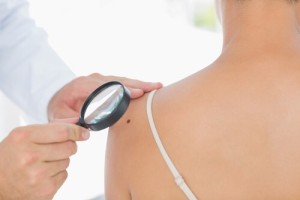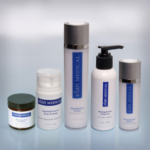Mole checking is vital says London skin expert

Mole checking is essential says Sue Ibrahim the nurse consultant in dermatology from Elan Medical Clinics in central London and Essex
Moles, brown spots and growths on the skin are usually harmless, but not always. If you have a certain type or large number of moles (more than 100), you are at greater risk of developing skin cancer.
The ABCDE method for checking moles is very useful but if in doubt, getting them professionally assessed is vital, says Sue Ibrahim. Sue, the nurse consultant in dermatology at Elan Medical Skin Clinics, has more than 30 years’ experience of assessing and removing moles using the latest advanced radio-wave technology. Click here to read reviews from her clients.
Asymmetry
If you draw a line through the middle of a mole, the two sides will match, meaning it is symmetrical. Anything asymmetrical is a warning sign for melanoma.



